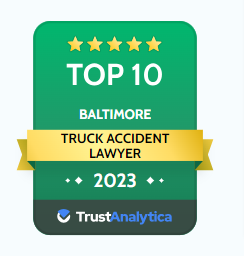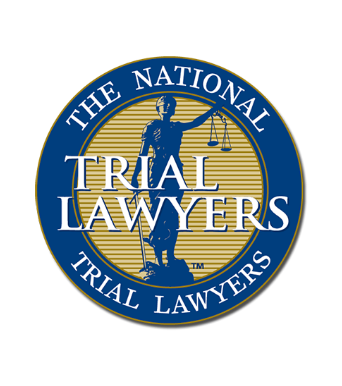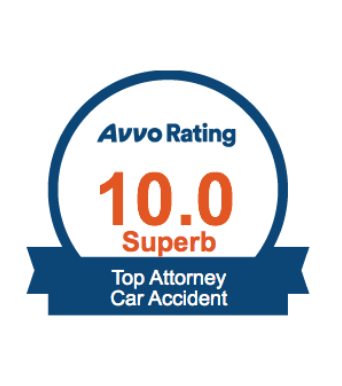Maryland Self-Driving Car Accident Lawyer
Although self-driving cars are not particularly common at this time, they are growing in availability and popularity. Tragic accidents across the country have shown time and time again that these vehicles come with their own risks and issues unique to self-driving cars. If you or a loved one was hurt in an accident involving a self-driving car or a member of your family was killed because of a self-driving car, it is important to talk to a lawyer about your options to seek compensation.
Many self-driving car accidents could have been prevented if the driver intervened or if programming flaws in the car’s system were properly fixed or recalled by the manufacturer. An experienced self-driving car accident lawyer can investigate your accident case and determine the cause of the crash, filing claims against the proper parties for your loved one’s wrongful death or your physical injuries and other damages.
For a free legal consultation on your accident case, call the Maryland self-driving car accident lawyers at Rice, Murtha & Psoras today. Our attorneys have combined decades of experience handling car accident claims and may be able to help with your self-driving car accident case. For your free case consultation, call us today at (410) 694-7291.
Causes of Self-Driving Car Accidents
Self-driving cars are still required to have a “driver” – that is, a licensed driver still needs to be seated in the driver’s seat in case anything goes wrong. Self-driving car manufacturers often emphasize this, and they encourage their drivers to stay alert and attentive rather than fully relying on the car’s self-driving system. Although the facts and factors involved in a self-driving car accident are often very complex, these accidents can often be blamed on either of those two parties: the driver or the manufacturer.
Driver Fault
In some cases, self-driving cars are left on self-driving mode in unsafe situations where a driver should have intervened. There have been crashes where the driver was either asleep or absent from the driver’s seat. it is possible that some of these accidents could have been avoided if the driver would have disengaged self-driving mode and manually taken control of the car before the crash happened.
The laws in most places, including Maryland, place the blame for accidents on a driver if they did something wrong. This would include blaming the human seated in the driver’s seat, potentially even if self-driving mode was active at the time of the crash.
Manufacturing Mistakes and Software Glitches
Other accidents are potentially caused by issues in the way the self-driving car was manufactured (hardware issues) or because of problems with the vehicle’s programming (software issues). Self-driving cars are built with many fail-safes and decision-making protocols that are intended to keep the driver and other people safe when self-driving mode is activated. If manufacturing issues and problems with the vehicle’s equipment caused the crash or faults in the software/programming caused the crash, the manufacturer could potentially be responsible.
In the example above of cases where the driver was not in the driver’s seat, most manufacturers say that that situation should be impossible. One fail-safe commonly used in self-driving vehicles is a feature that blocks self-driving mode when there is no driver in the seat. If a car had this feature and crashed while the driver was not in the driver’s seat, that could mean that the fail-safe was not functioning if the car stayed in self-driving mode anyway.
Other self-driving car crashes have been blamed on glitches where the lines on the side of a road were not recognized or where speed regulation and steering systems failed to function properly. In some rare cases, the vehicle’s programming is designed to make decisions that protect the driver at the expense of pedestrians or occupants of other cars, and the programming could have been functioning properly when the vehicle struck a pedestrian.
Determining Fault in a Self-Driving Car Crash in Maryland
In many cases, the question of whether the user or the manufacturer caused the crash will be an issue for the jury to decide. Our attorneys can investigate the crash and its cause, bringing the proper parties to court – which could potentially involve suing both the driver and the manufacturer for partial fault.
One important thing to note is that some problems with software and hardware issues may fall to the driver/user of the vehicle anyway. Self-driving car manufacturers often put warnings in their user manuals saying that some activities are dangerous – such as activating self-driving mode without a driver – or they list circumstances where the driver should disengage self-driving mode. If the self-driving vehicle’s operator failed to follow these instructions, that could be considered an unreasonable danger that puts them at fault for the crash.
Suing a Self-Driving Car Company for a Loved One’s Death in Maryland
If you lost a loved one because they were driving or riding in a self-driving car that had a malfunction, our attorneys can fight to get you compensation from the vehicle’s manufacturer. As mentioned, many of these cases are complex, but Maryland law does permit families of deceased accident victims to sue for compensation. Our Maryland self-driving car accident attorneys will research your case, investigate the software and hardware issues in the case, hire experts, and work to assemble a strong case against the vehicle’s manufacturer. Talk to one of our attorneys for help understanding how strong your case is and what compensation you can expect.
Call Our Self-Driving Car Accident Attorneys for Help with Your Claim
If your accident was caused by another “driver” in a self-driving vehicle or because of hardware or software problems with a self-driving car, Rice, Murtha & Psoras may be able to help. Call our Maryland self-driving car accident lawyers today for a free consultation on your injury or wrongful death case. Our number is (410) 694-7291.













